Despite days of complaints, a YouTube video capturing the moment when Megan Evans (above, left) popped the question to longtime partner Whitney Kay Bacon (above, right) has not been viewable by anyone who turns on the Restricted Mode setting. YouTube isn't saying why it blocked this or thousands (maybe hundreds of thousands) of other videos from LGBT people.
It's not because of vulgarity -- over the course of a 10-minute, 37-second clip, Evans lets the s word slip one time, and you can find nearly 18 million videos on YouTube in Restricted Mode with that particular curse word in the title. It isn't because of sex, either. The couple never discusses any type of sexual experience.
The video was posted in 2012 on Evans and Bacon's shared YouTube channel What Wegan Did Next, which documents the life of the social media super couple, and it came as a shock to the creators when this particular content got blocked in an apparent effort to protect minors from adult material.
"The videos that mean the most to us are being hidden on 'restricted' mode," the women write in an email to The Advocate. "These are beautiful videos of love and not something that should be hidden. I don't see any heterosexual proposal and wedding videos being hidden."
It could even affect the couple financially. The engagement video garnered more than 305,000 views between the time it was posted and now. Such milestone videos serve as traffic generators for popular vlogs.
But the video appears to be one of thousands of posts created by LGBT YouTubers that get netted by Restricted Mode in an irregularity spotted by creators only this past weekend. Google, which owns YouTube, declined to comment to The Advocate but published a post on its YouTube Creator Blog attempting to address concerns. It said the filter "will never be 100 percent perfect." Meanwhile, the tech giant had already planned a creator town hall event for Thursday to discuss search algorithms, and some YouTubers hope the event allows for further discussion of this issue.
In the meantime, LGBT creators remain perplexed how the flagged content could get in the crosshairs of parental controls in the first place. And these users all control a platform to make their feelings known.
Sounding Alarms
A search in YouTube for #ProudToBeRestricted shows a smattering of complaints about the apparent flaw in Restricted Mode. Chelsea Kei, a bisexual vlogger, posted a video Monday titled "YouTube Blocking Me For Being Gay," accompanied with a thumbnail showing a rainbow flag with a Ghostbusters-style slash across it. Rhiyad Khalaf reached past the YouTube platform, cross-posting a short video on Instagram decrying the fact half his YouTube videos were blocked in Restricted Mode. YouTube superstar Tyler Oakley on Twitter called for the service to "admit you messed up, apologize without excuses, immediately stop enforcing the ineffective policy."
The issue first garnered notice from creators last weekend. On Saturday, YouTuber Calum McSwiggan posted on Twitter that he suspected YouTube was filtering out LGBT content, based on impacts to his own channel.
Many YouTubers at first greeted the news with skepticism. Outrage spreads easily online, after all. But Restricted Mode can be turned on with the push of a couple buttons at the bottom of any YouTube page when users are signed in, making it easy to test how content gets affected. Upon doing so, many LGBT creators suddenly felt alarm when they realized how much of their own content was impacted by the filter. Evans and Bacon, for example, checked their posts Monday and discovered their engagement video, civil union ceremony, and a "How We Met" video all disappeared with the flip of a switch.
RJ Aguiar started looking around at his own channel, TheNotAdam, where most videos mentioning his bisexuality would be disabled in Restricted Mode. He started checking the effects on other channels. "For creator after creator, you can see them getting filtered for what is not adult content," he tells The Advocate. One of the more offensive examples to Aguiar was a video on his husband Will Shepherd's channel, shep689, chronicling the couple's trip to San Diego. The only reason he could find for the benign clip to be flagged was that it showed a same-sex couple.
Even YouTubers who expect some of their content to be flagged were shocked at the reach. Arielle Scarcella, who runs a lesbian-centric channel with such adult content as strap-on reviews, knows parents won't want children accessing much of her material. "My content tends to be more sexual in nature," she says, "but not all of my videos deserved to be flagged, and they all are."
Other vloggers didn't anticipate much of their library being affected. Connor Franta, for example, considers his channel to be largely family-friendly. He found videos restricted that didn't contain any swear words or discussion of sexual topics. But he was alarmed by what the banned videos did have in common. He notes the video "Gay Questions," where he answers questions from fans about his life experiences as a gay man. "The key was having the word 'gay' in the title," he says.
Lack of Reasoning
YouTube has yet to engage with press or creators in a public forum on the issue but has referred inquiries to a post published Monday that acknowledges the problem. Johanna Wright, YouTube vice president of product management, writes on the YouTube Creator Blog that "this feature isn't working the way it should. ... We're sorry and we're going to fix it."
As far as financial impact on channels, Wright notes that only 1.5 percent of YouTube daily views come from people who have Restricted Mode turned on. "But we know this isn't about numbers," she writes. "It's about the principle of anyone having access to important content and different points of view."
YouTube's post goes on to identify four specific clips, including one of McSwiggan's, that should never have been blocked in Restricted Mode. Those four videos can now be seen with the toggle on or off, but for the vast number of posts affected, there has been no change. In fact, in a list of 19 seemingly mundane posts compiled by The Advocate, only those four identified on the Creator Blog had seen restrictions lifted as of press time.
Perhaps more telling of discrimination, though, may be the videos completely unaffected in the midst of this controversy. Multiple compilations of Mortal Kombat fatalities can still be found with Restricted Mode activated. YouTuber Jennifer Olaleye's post "My University Experience: Boys, Sex and Making Friends" remains viewable. So does a video on the Your Stoner Neighbor channel explaining how to germinate marijuana seeds. A dirty parody of children's cartoon Zootopia including pictures of characters Judy Hopps and Nick in a variety of sexual positions can be seen, despite a warning that some viewers might find the images "disturbing."
But a post by Oakley celebrating queer black activists in history gets filtered. A Tom Goss music video showing the singer in front of a white backdrop singing a love song gets the boot. Goss says he has reached out to YouTube "in person" but remains upset.
Aguiar says the issue has grown into a full-blown public relations crisis for YouTube in part because no explanation has come yet as to why a video would be flagged merely for mentioning LGBT people. If the idea is that children must be protected from hearing even of the existence of homosexuality, bisexuality, or transgender people, well, that's a bigger problem altogether. "That's the same justification homophobes have been using for years to infringe on our rights," Aguiar says.
LGBT-Friendly?
What's most stunning to many users about this controversy is YouTube's long-standing record of tolerance and embrace. "YouTube has been so great an ally," says Franta. "They have always been about freedom of speech."
Indeed, for many LGBT users, the video sharing service offered a haven during times in the lives when one was hard to find. Transgender star Gigi Gorgeous, who just made a movie about her life in partnership with YouTube Red, says in a response video to this controversy that YouTube gave her a safe place for self-exploration during her transition, and she hates the idea that many youths going through the same emotions today can't see many of her videos.
Sarah Rotella and Adrianna DiLorno, who run the Unsolicited Project showcasing content for women and LGBT audiences, similarly feel it's important their content reach younger LGBT people. "We hear from many of our subscribers that our content has helped them come out, helped them become comfortable with who they are, and makes them feel part of a community," the pair wrote in an email to The Advocate. "With Restricted Mode on, every single video on our channel disappears."
Many creators say they don't mind the existence of a Restricted Mode filter. YouTuber Josh Rimer remains skeptical that LGBT people were ever the intended target of the practice. "I actually think differently than most of my counterparts in that it isn't necessarily LGBT content that's being unfairly targeted or that it's unfounded," he tells The Advocate. "Yes, some of my content has been removed, but most is still there. Many LGBT YouTubers talk about things that would be considered part of sex-ed and to many people that isn't what they'd want their children to see on YouTube. I don't necessarily think that's outrageous or homophobic. ... I do think that the system is flawed, though, and YouTube says they're fixing it."
Rimer would like to see immediate notifications whenever a video gets tagged for Restricted Mode and for an appeal process when creators disagree with that measure. He has no idea, for example, why a video of him commenting on a viral dog video would be flagged. But he also knows some parents may not want their children stumbling across material having to do with any type of sexuality, LGBT or otherwise.
But as long as the filters continue to block LGBT content even while leaving up questionable content from straight creators, YouTubers predict Restricted Mode will plague YouTube.
Aguiar suggests the problem with the filter is indicative of a larger issue at YouTube, a company infamous for rolling out services like YouTube Red with little warning to creators and for tweaking changes in its search algorithm without fully explaining the shift, leaving creators struggling with search engine optimization.
"I understand why somebody would think it's a good idea to be in Restricted Mode," Aguiar says. "I even understand that since I talk about some adult subjects in some videos, some of my videos won't appear in Restricted Mode. But the fact is, this is very clearly affecting LGBT creators and content when it shouldn't be, and it's disproportionate. To say this was done with the best of intentions, and we will get to it whenever we feel we should get to it on whatever timeline we want, that's unacceptable."
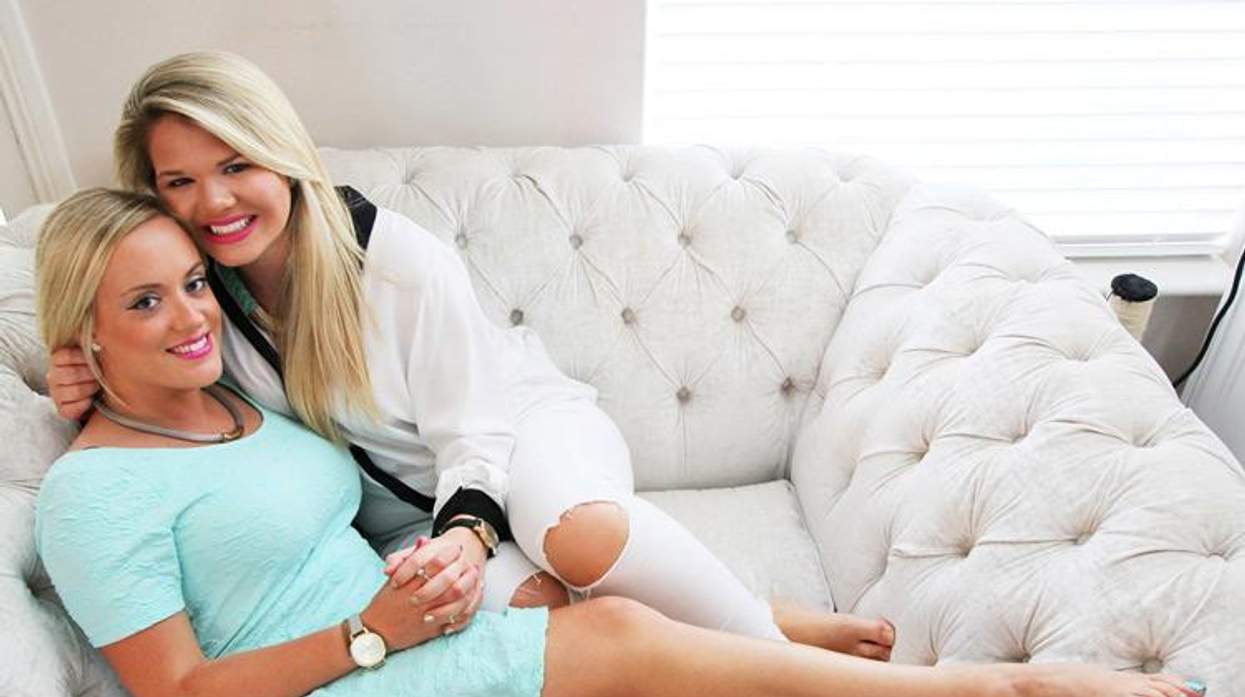





























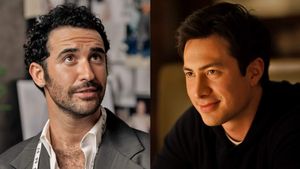









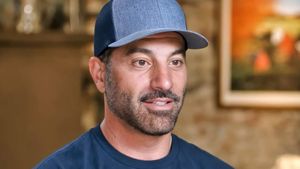


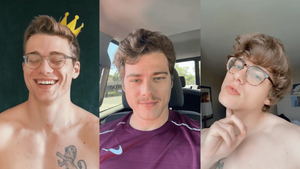

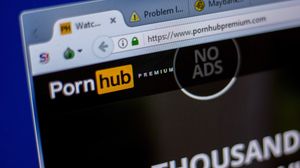

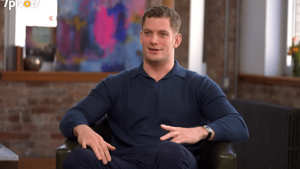



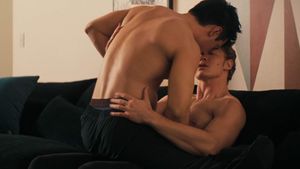

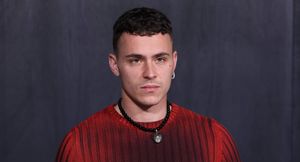






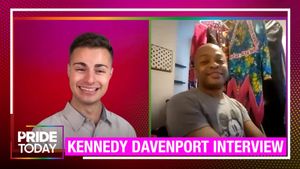





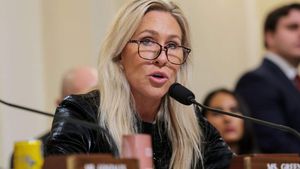

Charlie Kirk DID say stoning gay people was the 'perfect law' — and these other heinous quotes